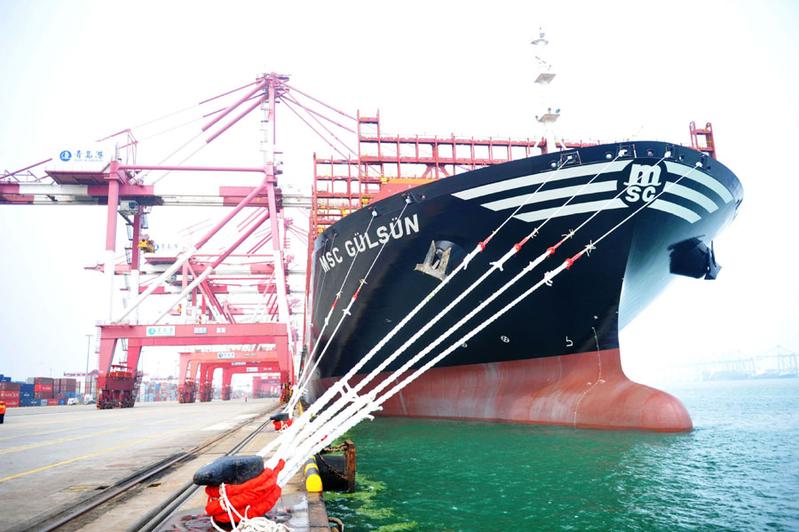


China has taken steps to curb a surge in container shipping rates to stabilize the international supply chain and boost foreign trade, the Ministry of Transport said on Sunday.

A container vessel arrives at Qingdao, East China's Shandong province, on July 11, 2019. [Photo/Xinhua]
The ministry has encouraged international container shipping companies to increase freight capacity on export routes from the Chinese mainland by measures such as offering more containers and enhancing transport efficiency, ministry spokesman Sun Wenjian said.
Sun told a news conference that major container shipping companies had allocated more space on major routes from China in the first eight months of this year.
For example, the freight capacity on routes to North America reached 9.11 million standard containers (TEU), up 40.2 percent year-on-year and an increase of 24.8 percent compared with the same period in 2019.
The freight capacity on routes to Western and Northern Europe was 5.67 million standard containers, up 23.7 percent year-on-year and 8 percent more than in the first eight months of 2019.
A shortage of empty containers has caused difficulties for shipments. The ministry and the Ministry of Industry and Information Technology have urged container manufacturers to increase production and have helped container companies arrange more empty containers on return trips.
China has been making a record 500,000 containers a month, up from 200,000 previously.
Putting more new containers into use has speeded up the turnover of empty containers and relieved pressure from the container shortage, Sun said.
China has a stockpile of 400,000 containers, and only a few container shipping companies have experienced temporary shortages of empty containers in some ports due to shipment delays, bad weather and epidemic control measures, he said.
Sun urged stakeholders, including shipping companies, port operators and trading enterprises, to engage in long-term cooperation. He urged cargo owners to sign long-term transportation agreements with container companies to receive stable service and ensure a stable logistics supply chain.
He said one Chinese cargo owner had signed a long-term cooperation agreement with a shipping company at the start of the year that had secured a stable price of $2,600 a container. The market price of a single container had since increased to more than $10,000.
"The long-term agreements ensure rights for shipping companies and cargo owner companies, and also stabilize the market price," Sun said, adding that they are a win-win solution.
Between January and August, China's imports and exports of goods increased by 23.7 percent year-on-year, with exports up 23.2 percent.
The improvement in China's foreign trade has boosted the need for containers, while the spread of COVID-19 has caused congestion at some overseas ports.
